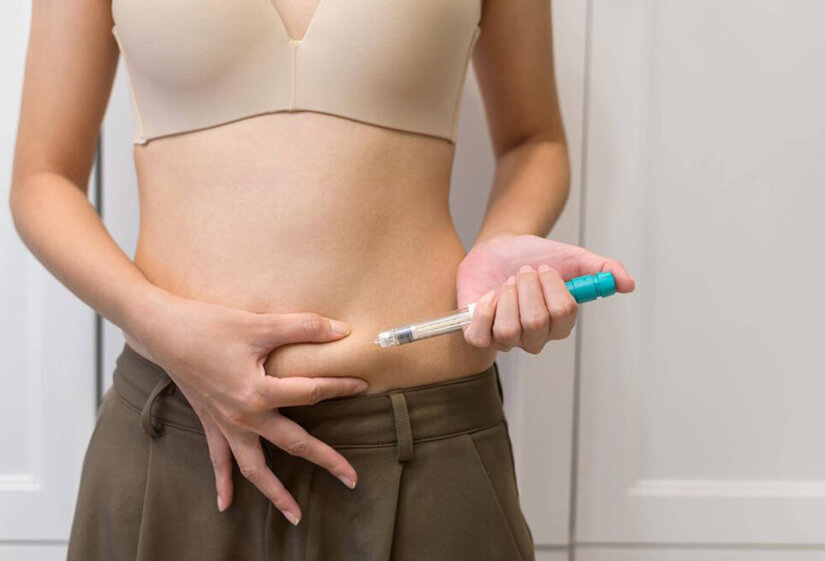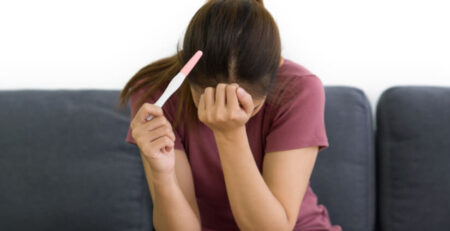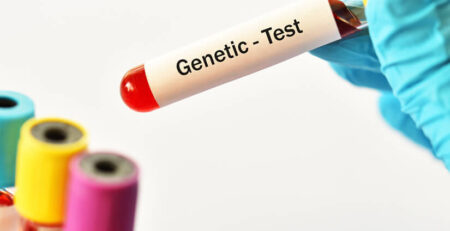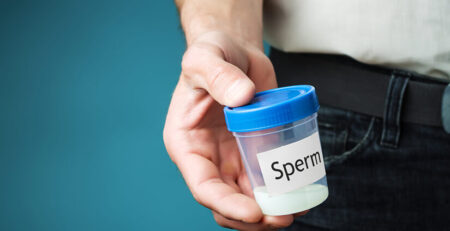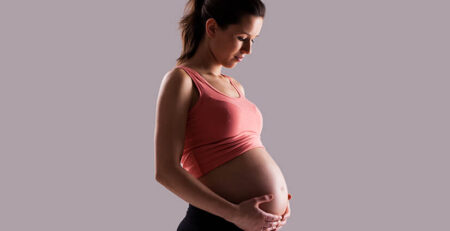How Many Injections for IVF Treatment?
IVF, aka in vitro fertilization, offers a ray of hope to millions of hopeless couples who can’t achieve their dream of being parenthood through natural conception. Going through in vitro fertilization (IVF) can be a daunting experience, especially if you dislike needles. Almost every stage of the IVF procedure necessitates injections. If this is the case, you might wonder how many injections are required during the entire IVF journey. Having the knowledge of injections ahead of time will help alleviate your anxieties and prepare you for your IVF journey.
So, let’s find out the total number of injections you will get during your IVF treatment.
Types of IVF Injection
Thinking about IVF can be a bit scary, especially when you start wondering about all those injections. But guess what? Most clinics have a protocol, and it usually involves three main types of shots. Yes, just three! Easy, right? These injections are categorized into three types:
- Gonadotropin injections
- GnRH analogues (Agonist/ Antagonist)
- Trigger injection
But here is a thing. In rare cases, you may require extra injections called adjuvant injections. So, let’s understand these injections in detail.
1- Gonadotropin Injections
First and foremost, we will discuss gonadotropin injections because they are the main player in IVF treatment. So, let’s see how they work. The IVF procedure starts by stimulating the ovaries to collect enough eggs for fertilization. To stimulate the ovaries, gonadotropin injections are given. These injections contain hormones like FSH (follicle-stimulating hormone) and LH (luteinizing hormone). Ideally, these hormones are released from the brain and help in one egg development, but here in IVF treatment, extra eggs are required, so your IVF centre in Delhi gives you injections to pump up the hormone release and egg production.
Now, let’s count how many gonadotropin hormones you will get during the entire procedure. You will take these shots every day for about 10 to 12 days, starting from the second day of your period. Sometimes, you will need just one type of hormone, and other times a combination. Rarely, you might need both FSH and LH injections separately. It all depends on your body’s needs.
Do you know that there are different types of these shots? Some are super pure, and others are slightly less pure, coming from a urinary source. But don’t worry; your chosen IVF centre in Delhi will pick the best one for you.

2- GnRH Analogues (Agonist/ Antagonist)
The next type of shots you will encounter in IVF treatment are called gonadotropin or GnRH analogues. These injections can be either GnRH agonists or GnRH antagonists, and they are used in different treatment protocols.
In an agonist protocol, the injections start from the last days of your previous menstrual cycle and continue until the final injections. This normally lasts from two and a half to three weeks, depending on your cycle length.
In contrast, in an antagonist protocol, injections start in the middle of the gonadotropin injections, often with the sixth dosage. This implies they overlap with the second part of the stimulation phase, which runs from day 6 to day 11 of the cycle.
Now, you would be excited to know the purpose of these IVF injections, right? These injections help to prevent the rupture of follicles inside the body and regulate the cycle externally. They temporarily suppress the pituitary gland, which normally releases hormones to help in egg formation. By doing so, they prevent egg formation or rupture from happening internally, instead steering the cycle from outside.
The choice between these protocols depends on factors such as the patient’s egg reserve, the risk of ovarian hyperstimulation, and the specific day on which stimulation begins.
3- Trigger Injection
Let’s move to the third type of IVF injection, called a trigger injection. Its main role is to help the eggs inside the follicles mature fully. There are two kinds of trigger injections: recombinant and urinary. They also come in two types: HCG triggers and generic agonist triggers.
These trigger injections are given when the follicles reach the right size, usually when three or more follicles measure 17 to 18 millimetres or larger. Once this is seen on a scan, the trigger injections are administered. After giving the trigger injection, the egg retrieval procedure usually takes place about 35 to 36 hours later.
4- Adjuvant Injections
The final type of injection used in IVF treatment is called adjuvant injection. These injections are not given to every patient, but they are used in some cases to help with the growth of follicles.
In a few patients, growth hormone injections or low doses of HCG may be given. These injections help the follicles respond, making them more likely to produce eggs successfully.
So, How Many Injections Are You Taking?
When we add up all of the shots injections required for IVF treatment, it normally comes to roughly 10 to 12 gonadotropin injections. If you are using an antagonist protocol, you may need an additional 5 or 6 injections for 16 to 18 injections. Then there is the trigger injection, which marks the 19th shot altogether.
When it comes to an agonist protocol, things differ somewhat. You would normally have one type of injection for roughly two and a half weeks, for a total of 18 to 20 days of injections. In addition, there are gonadotropin injections for 10 to 12 days, for a total of about 30 injections. Add with the trigger injection, total around 33 injections in all.
If adjuvant injections are added to the mix, they are given separately, and the injection count may be changed.
Factors Affecting the Number of IVF Injections Required
How many injections you need during In Vitro Fertilization (IVF) depends on your own medical situation and the type of treatment you are getting. However, other things can affect how many injections you will need:
- Age: Usually, the older you are, the more eggs you need to have collected for IVF to work well. This means older women might need more injections. Why does this happen? As women get older, their fertility naturally declines. So, to have a better chance of success with IVF, they might need to retrieve more eggs. And that often means more injections to help stimulate egg production.
- Ovarian Reserve: Your ovarian reserve also determines how many injections you will get during IVF treatment. Ovarian reserve means how many healthy eggs you have in your ovaries. If you have a lot of healthy eggs, usually you won’t need as many injections because there’s a better chance of success in getting pregnant.
- Medical History: If a woman has previously had health problems or difficulty becoming pregnant, her IVF doctor at the best IVF centre in Delhi may recommend that she receive more shots than normal. By doing so, the doctor aims to increase the likelihood that things will turn out well.
Are There Any Side Effects of IVF Injections?
While IVF injections are safe, they carry some minor side effects. When going through IVF, it’s good to know these side effects so that you can make an informed decision. The most common side effects of injections are:
- Soreness or Bruising from Injections: Getting injections during IVF can sometimes leave you feeling sore, seeing bruises, or having tenderness where the injection was given. To lessen any discomfort or bruising, try using different spots for injections whenever you can.
- Nausea: Some people might feel nauseous during IVF, and sometimes they may even vomit, although it doesn’t happen to everyone.
- Breast Tenderness: The medications used in IVF treatment can make your breasts feel more sensitive, similar to how they might feel before or during your period.
- Bloating: You might feel full and swollen in your belly. This happens because the hormones used in IVF are similar to the ones in your monthly cycle but in higher amounts.
- Hot Flashes: Some women might experience sudden heat and sweating because of the hormonal medications, especially those that lower estrogen levels.
- Mood Swings: The medications can affect your emotions, leading to mood swings. You might feel irritable, restless, or a bit down.
- Fatigue: Hormonal changes and symptoms like hot flashes might make you feel tired during IVF treatment.
- Allergic Reactions: In rare cases, women may have allergic reactions to the injections, causing itching or redness at the injection sites.
- Ovarian Hyperstimulation Syndrome (OHSS): Sometimes, the ovaries respond too much to the hormones, causing symptoms like bloating, nausea, and weight gain. Most cases are mild and can be managed with rest and fluids, but severe cases might need examination.
- Pelvic and Abdominal Pain: After egg retrieval, you might have mild to moderate pelvic or abdominal pain, like cramps. Over-the-counter pain medication usually helps, and it usually goes away within a day or two.
Takeaway!
Knowing how many injections are required in IVF treatment will help you relax and prepare for what is ahead. While the number of injections may appear complicated, understanding how they work and the vital role that they play in the IVF process can help make the experience easier.
If you are considering IVF treatment, consult with Dr Rhythm Gupta. She will guide you through the entire procedure and let you know how many injections you will get during your treatment.

